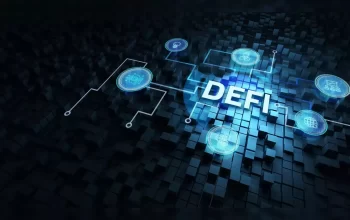The term “Decentralized Finance” (Dfi) refers to financial services based on blockchain technology. While most applications are built on the Ethereum network, other public networks are emerging that provide superior speed, scalability, and cost. DeFi also employs smart contracts, which offer Turing Complete programming languages that enable multiple parties to interact without a central party. These benefits make blockchains an excellent platform for financial applications. Ultimately, DeFi will transform the way people and businesses access financial services.
In contrast, centralized finance requires applicants to submit a loan application to a bank or other financial institution, which will then match the applicant’s application to available peer lenders. The lender’s algorithm will match the applicant’s application with peers, who will then agree to the terms of the loan. With DeFi, the applicant is only responsible for the amount of interest and service fees, not the cost of the loan. The application is free and secure, and participants in the decentralized finance ecosystem have access to each other’s funds.
The primary benefit of a decentralized finance system is the elimination of third-party intermediaries, which often make financial transactions more difficult and costly. However, while DeFi provides anonymity, these transactions are traceable to entities with access to the blockchain, including governments, law enforcement, and private individuals protecting financial interests. Blockchain transactions are recorded in blocks, which are verified by other users. Each new block contains information about the previous blocks. In this way, the entire history of financial transactions can be traced.
As DeFi continues to advance, it will become increasingly important to democratize financial services. As this trend continues, the power to build financial services will become more distributed, and DeFi and fintech will merge at an inflection point. The resulting financial system will be accessible, fast, secure, and egalitarian. The benefits will be immense. But there are still a few challenges ahead. One of the most pressing is identifying and defining the right regulatory framework for the sector.
The most popular activity in the DeFi ecosystem is lending. The concept of using cryptocurrency as collateral for loans has been popularized by platforms such as MakerDAO and Compound Finance. The new wave of financial applications could become the next Robinhood. The decentralized finance movement has generated a massive capital flow. These platforms command billions of dollars of total value locked at any given time. In addition, some DeFi solutions can be used for yield farming, which involves scanning for a larger return than the one provided by traditional methods.
Another popular form of DeFi is lending markets. These platforms connect borrowers with cryptocurrency lenders. One of the most popular applications is Compound, which matches people who want to borrow cryptocurrency with those who want to receive it. The application allows users to set interest rates algorithmically, and as the demand increases, the interest rate will go higher. Since the loans are based on cryptocurrency, users do not have to disclose their identity. In contrast, non-DeFi loans are based on credit scores.







